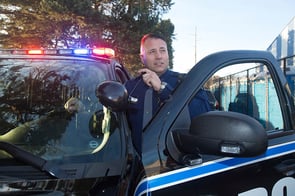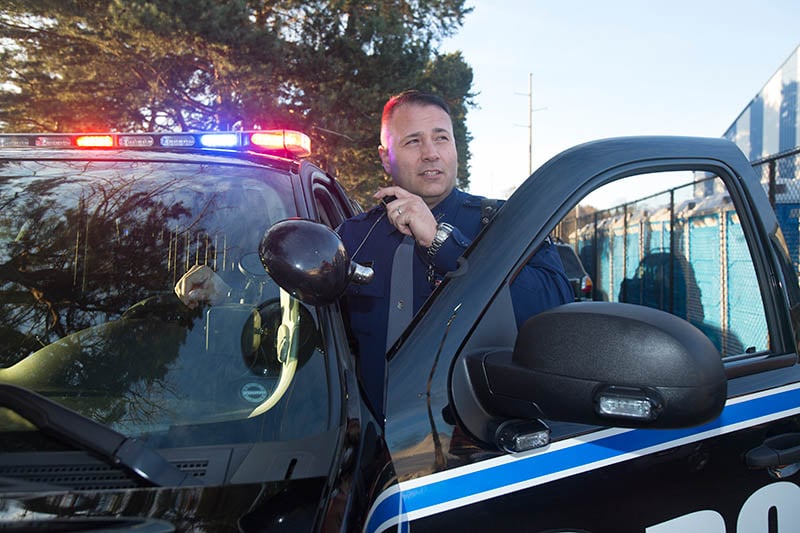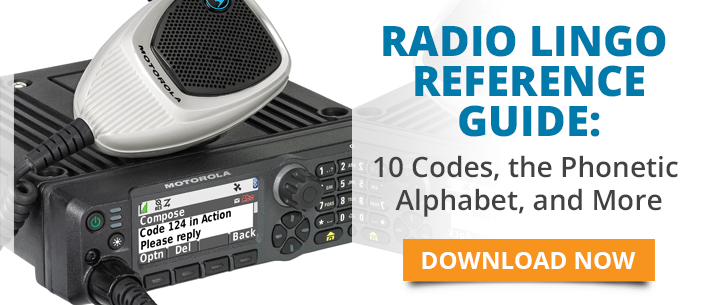Like other forms of radio lingo such as 10 codes, the police phonetic alphabet grew out of a need for users to communicate quickly, clearly  and without ambiguity.
and without ambiguity.
The alphabet endures today not only because of its utility but because of its significant role in public safety culture – it’s hard to imagine officers communicating without it.
Let’s take a quick look at the history of the police phonetic alphabet and its role in public safety.
Not Just Alphabet Soup
By using a phonetic alphabet as a shorthand, police officers, military officials and other radio users avoid the confusion caused by multiple letters that sound the same.
Each word represents a letter of the alphabet when spelling out everything from license plate numbers to proper names.
Alphabet History
The police alphabet has similar roots as the military phonetic alphabet and international phonetic alphabet, also known as the 1956 NATO alphabet, but law enforcement officers have – of course – made it their own over time.
The police version originated in a 1940 newsletter by the Association of Public-Safety Communications Officials-International (APCO). It’s been designed to be universal so that officers, regardless of where they’re from, can communicate with each other.
There are some regional and departmental differences around the world and even the U.S., but there is an international standard.
Spelling it Out
The internationally recognized police phonetic alphabet is:
Alfa, Bravo, Charlie, Delta, Echo, Foxtrot, Golf, Hotel, India, Juliet, Kilo, Lima, Mike, November, Oscar, Papa, Quebec, Romeo, Sierra, Tango, Uniform, Victor, Whiskey, X-ray, Yankee, Zulu
Past, Present, Future
Two-way radio lingo is an important part of wireless communications history and the ways that users have adapted to the technology’s limitations.
Public safety radio users are passionate about their unique takes on language and the role it plays in their culture, whether it’s police radio codes, CB radio lingo or ten codes.
While there is a push for so-called plain language across radios, with some officials questioning whether ten codes should be phased out, phonetic alphabets are still widely used across public safety.



